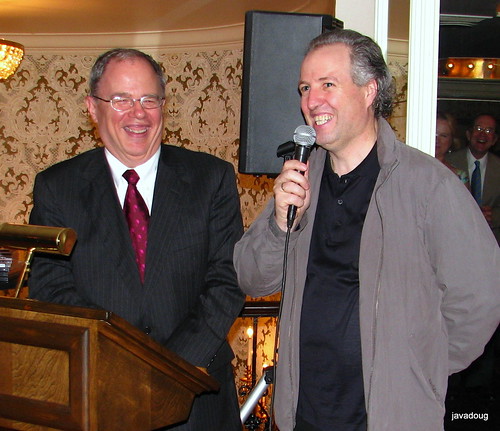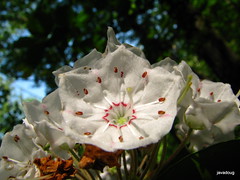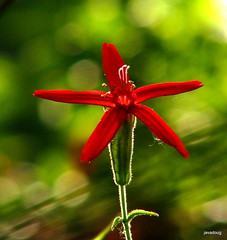
Tonight's concert at Heinz Hall was extra special!
Manfred Honeck, conductor
Jane Irwin, mezzo-soprano
The Mendelssohn Choir of Pittsburgh,
- Betsy Burleigh, director
Children's Festival Chorus ,
- Christine Jordanoff, directorMahler: Symphony No. 3
This is but a brief list of why I think this concert shined brighter than Venus on a summer's night:
- Manfred Honeck - when he conducts he's both a force of music, and at the same time comes across as humble and respectful. His smile seems to melt the audience's collective hearts.
- Jane Irwin, mezzo-soprano -- wow, her voice was fantastic, and the words, written in German, were easily understood; I got to meet her at the event after the symphony --
- The Mendelssohn Choir of Pittsburgh along side the Children's Festival Chorus sang some beautiful songs along with the symphony - that was a treat.
- Mahler's third - yet I see no subtitle; the first symphony was called "Titan" -- I guess when you start out with a giant like Titan, is there anywhere else left to go -- not up, but a broader, deeper symphony was this third, thus I suppose no subtitle is necessary when you grow thus.
- Farcical yet tragic - Mahler's understatement of his symphony -- from wikipedia - "Mahler himself recognised the idiosyncrasies in his work, calling the Scherzo in the Third Symphony 'the most farcical and at the same time the most tragic piece that ever existed ... It is as though all nature is making faces and sticking out its tongue.'"' -- I wasn't sticking out my tongue; in fact, I was sitting there in awe with my mouth ajar, marveling at this beautiful music.
- Nature - Mahler once said: “I might be called (with due deference to Him) the singer of nature. Since my childhood, nature has been for me the ‘one and all’.” Well as I've called myself a country-boy at heart, I feel one in tune with this composer - who is in tune with nature - especially after hearing his first and third symphonies. I need to hear some more, they are not played nearly enough. Somehow I missed the second symphony.
- A Vital Force - If nature, to Mahler, is an overwhelming vital force then I wholeheartedly agree. I see nature everywhere and in everything. Mostly good, but nature has its deep and somber moments as well, and we heard that tonight in the first introductory movement and spread throughout this symphony. The range of the emotion was invigorating. The deep bass sounds and the drums where broad, expressive and moving, the strings were vivid and the woodwinds and brass trumpeted trilling messages of fervour.
- The PSO - they were wonderful, what else can I say - except I believe the sounds was better tonight, perhaps the larger expanse caused by the projection of the back wall permitted a better permeation and greater dissemination of that fabulous brass sound.
- Tief - Deep -- The lyrics/words by Nietzsche used this word 'Tief' to describe his 'deep dream from which he has awakened.
- Die Welt ist tief - The world is deep. Tief ist ihr Weh - Deep is her woe. Doch alle Lust will tiefe Ewigkeit - Yet all joy wants deep eternity -- Und tief ist diese Sinfonie!
- I was told that principal Trumpet for the PSO, George Vosburgh was off stage somewhere on the fourth floor playing that remote trumpet part in the third movement. To me that was one of the most beautiful solos and fantastic movements to a symphony I've ever heard. If I had to pick a favorite at this particular moment in the history of the world, this one is now it - it's my current 'next best thing.'
- A friend who I saw at the after concert event hosted by WQED (why didn't everyone stop there on the second floor of Heinz Hall afterwards) told me Mahler is his favorite composer, and that if he had to pick a favorite movement from any symphony it would be that beautiful last movement where the strings of the PSO had their showcase - he does have a good point - but there can only be one favorite.
- It was great to have Manfred Honeck stop afterward and speak to the folks who stayed after the concert.
- Speaking of 'next best thing,' we are always searching for just that, the next best, and most important thing on our minds at the moment. Tonight I saw folks going to so many venues in downtown Pittsburgh, it's great to have an alive and vibrant community filled with the arts. If I could clone myself, one of me would be at the PSO, and the other would have been at the Three Rivers Art's Festival - I'm told they have an inflatable floating head of Andrew Carnegie on display, what a great sense of humour our town has!
- I got to meet my new facebook contact Susan Johnson, who told me that little tid-bit about the sense of humour we all have in Pittsburgh :)
- Likewise I met many of the people who work for and do the radio shows for WQED, including Jim Cunningham and all the rest. It was a pleasure to meet everyone.
- Thanks to the Pittsburgh Symphony Orchestra for such a great season, and especially for letting me blog for them!
btw: I counted over 30 microphones strategically placed, the PSO was recording this live for later release on CD.






